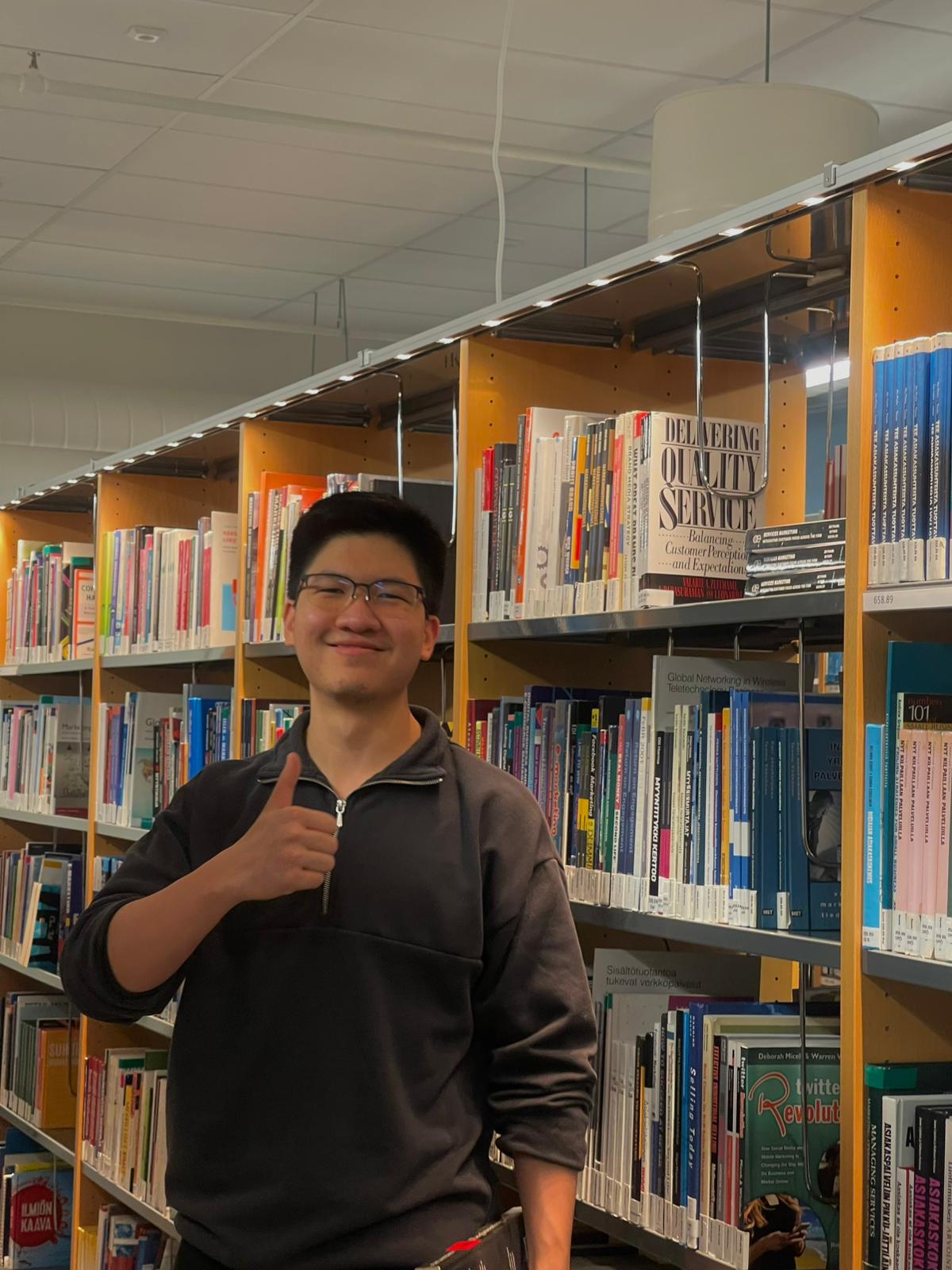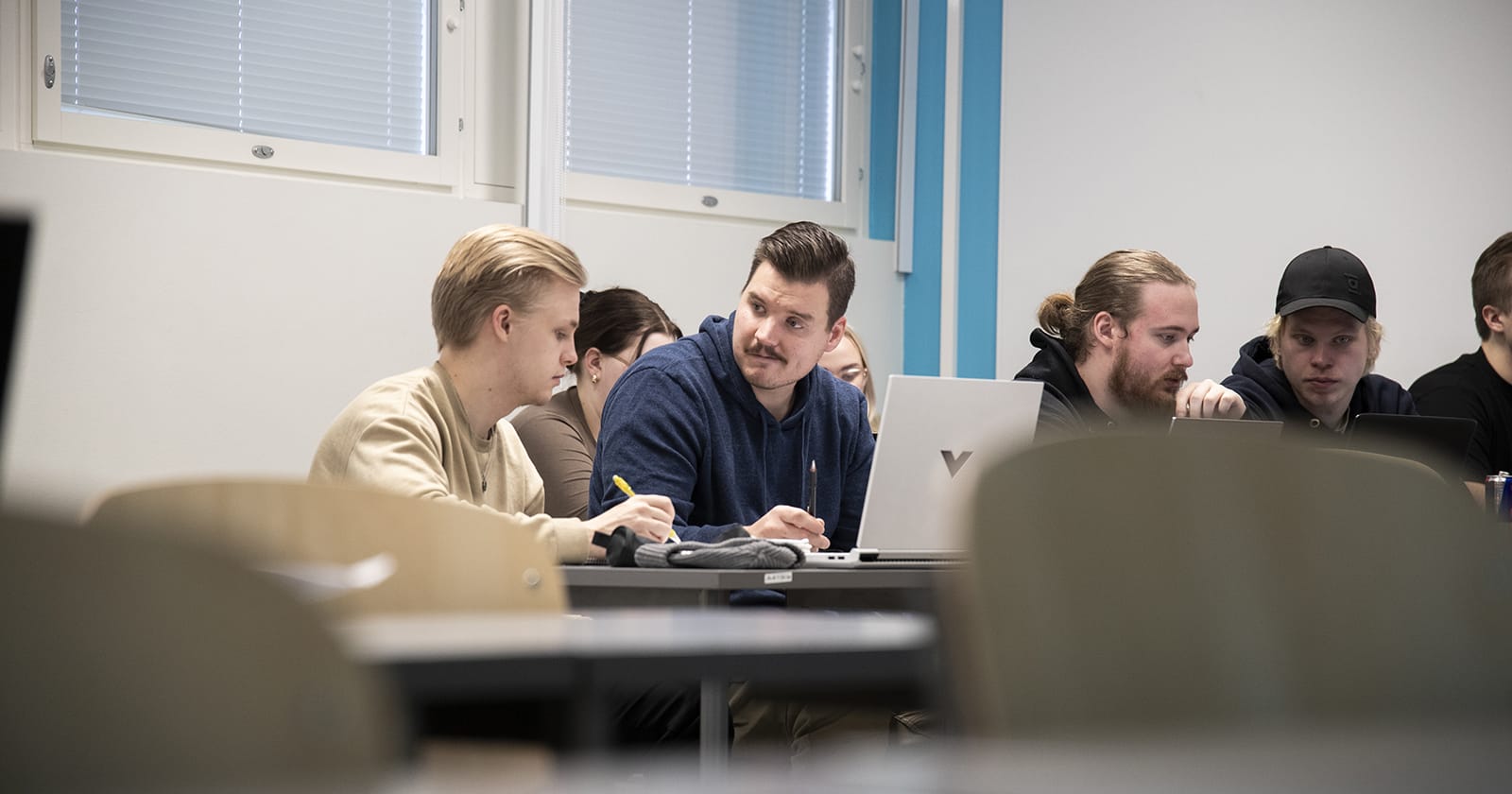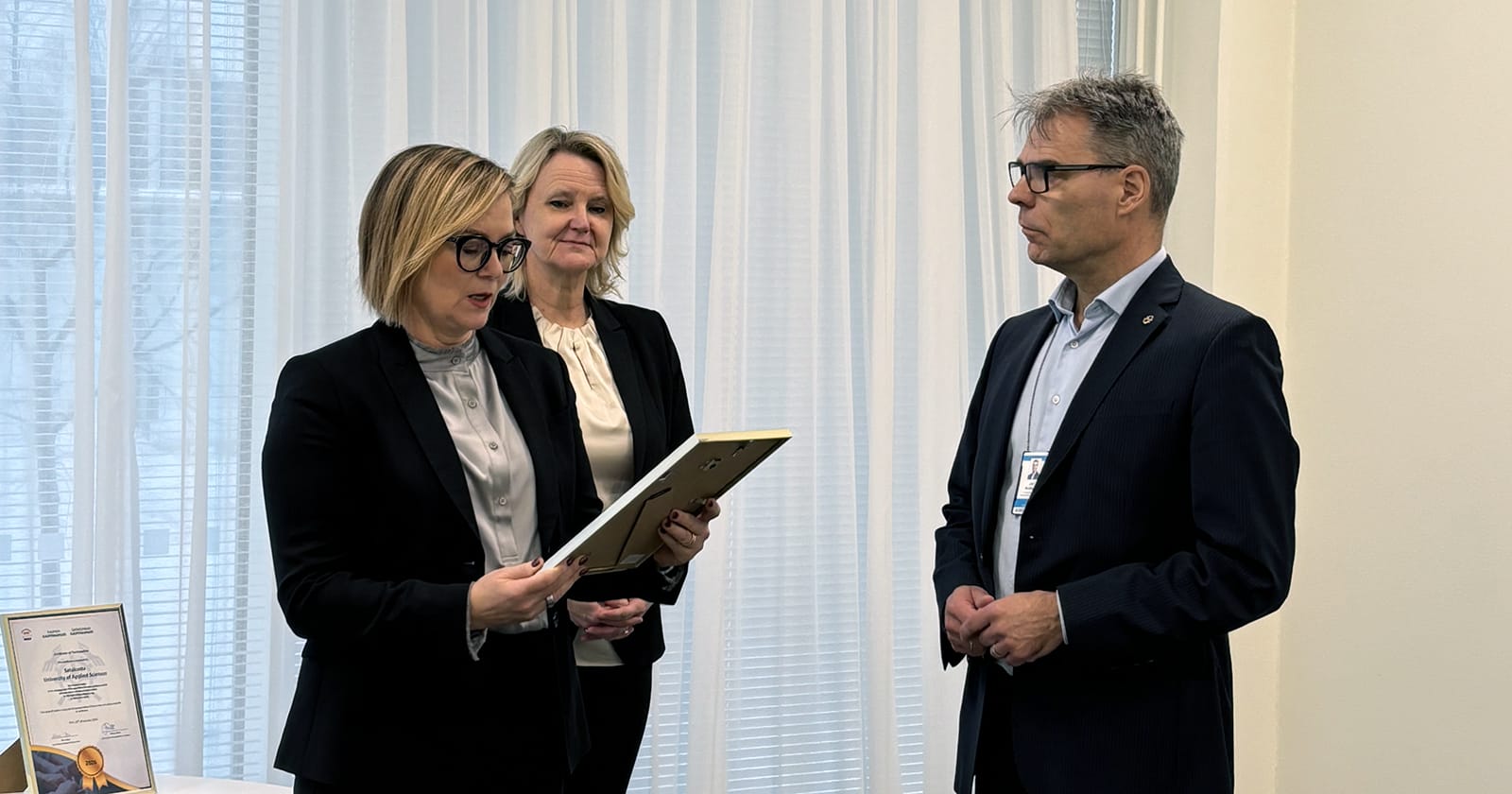Valuable further training for physiotherapists
Physiotherapists in the region of Satakunta enjoy a special position as they are given an opportunity for exoskeleton training free of charge.
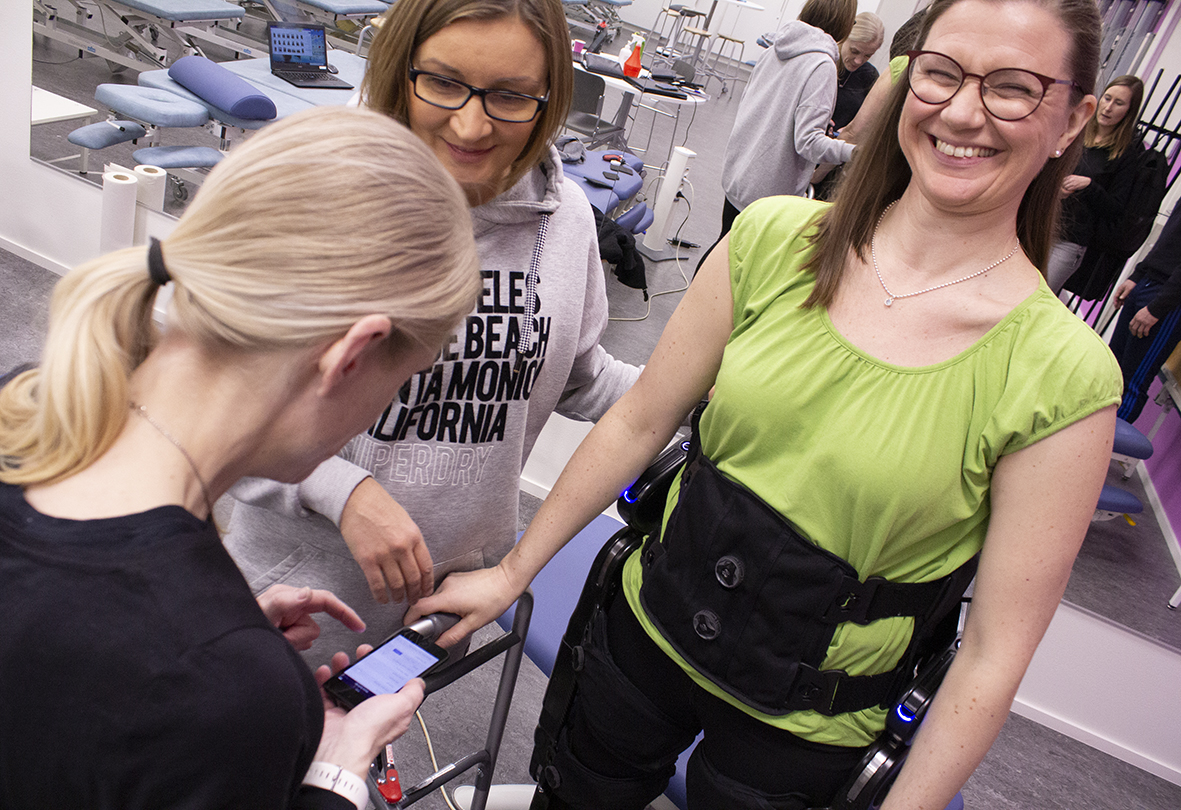
Indego has two programmes: Motion+ and Therapy+. With Motion+ programme, the robot produces all the motion the way the physiotherapist has programmed, and no work is needed by the rehabilitee. With Therapy+ programme, the rehabilitee takes the steps and the robot assists when the rehabilitee is not able or capable of doing it. The programming takes place by the device´s own Ipod. Project researcher Taina Jyräkoski´s turn to take steps.
RoboAI Research and Development Centre´s Indego exoskeleton rehabilitation robot has now been in use for just over a year. Anja Poberznik, Krista Toivonen, Kyle Mulholland and Sari Lintukorpi from SAMK have Indego Specialist Certificate, and they have been touring different events to present the device for students, enterprises and the general public. Now physiotherapists in the region of Satakunta have an opportunity for exoskeleton training free of charge.
– It is difficult for solo entrepreneurs and small physiotherapy companies to receive the necessary education on the utilization possibilities and effectiveness of new technological innovations. We are developing service design round exoskeleton together with professionals, and later we will introduce a leasing model for the device based on experience, project researcher Taina Jyräkoski tells us.
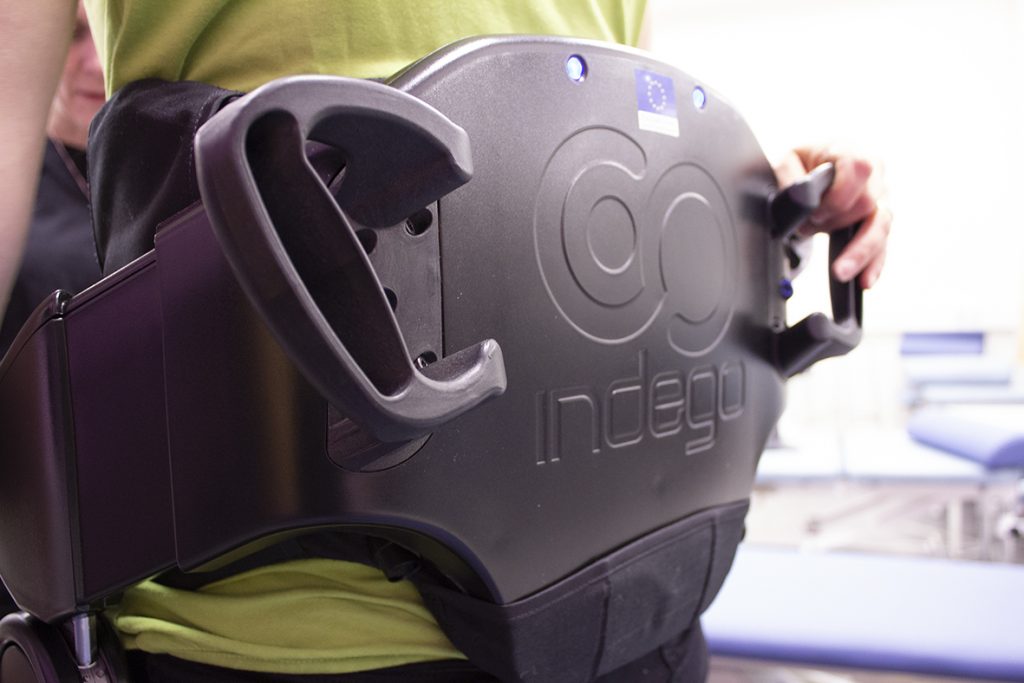 Tool for physiotherapists
Tool for physiotherapists
After training, the physiotherapist has the necessary knowledge to evaluate the suitability of the client for Indego rehabilitation. In addition, physiotherapists have the possibility to act as partners of Indego Specialist Certificate holders when rehabilitating the clients of their own companies. Exoskeleton is used especially in the rehabilitation of patients with spinal cord injury, cerebral infarction, MS and brain injury. The training is targeted particularly for physiotherapists in the region of Satakunta and surroundings who work with neurologically injured patients. During the training, the physiotherapists will get to try out the rehabilitation robot themselves and it is really the most important part to get an idea what it feels like and what kind of functional ability is required from the user.
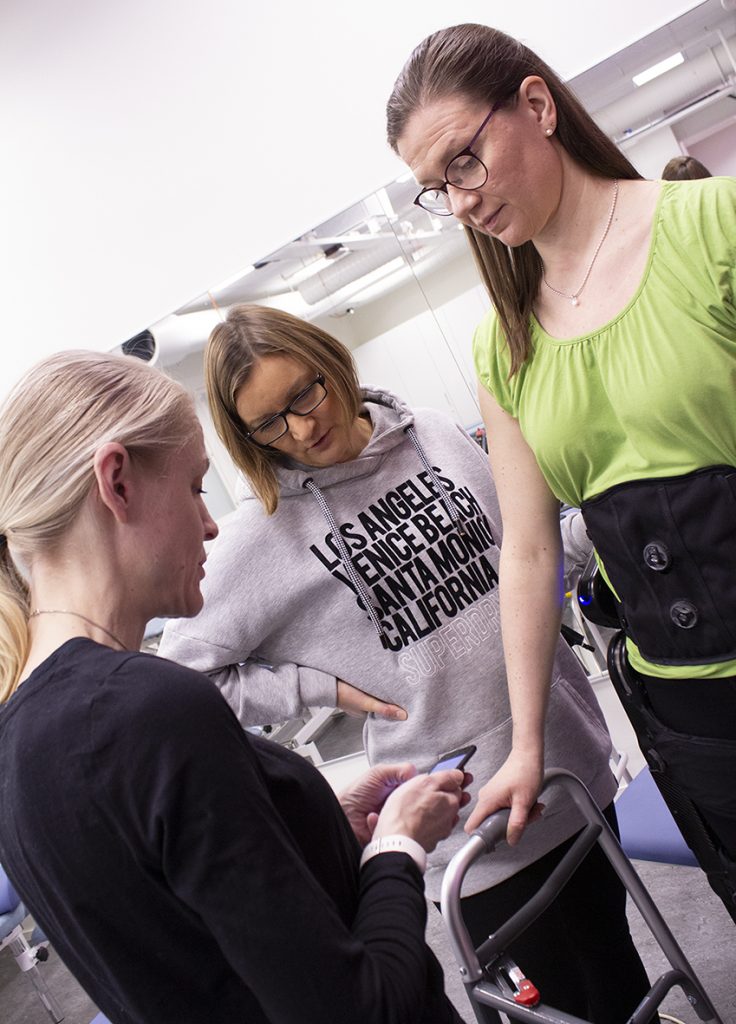
– Before a physiotherapist can guide a client, it is important to understand yourself how to walk assisted by a rehabilitation robot, describes project researcher Anja Poberznik.
– Because exoskeletons are expensive, using them as a part of physiotherapy is still rare. We hope that we can play a part in raising awareness of them and enabling the use of the device for as many as possible, reminds Poberznik.
Indego training is made possible by Satakunta Digihealth Project.
Free Indego training for physiotherapists began at SAMK Campus Pori on 17 February 2020.
For more information, please contact:
Project researcher Taina Jyräkoski
Tel. 044 710 3228
Email: taina.m.jyrakoski@samk.fi

